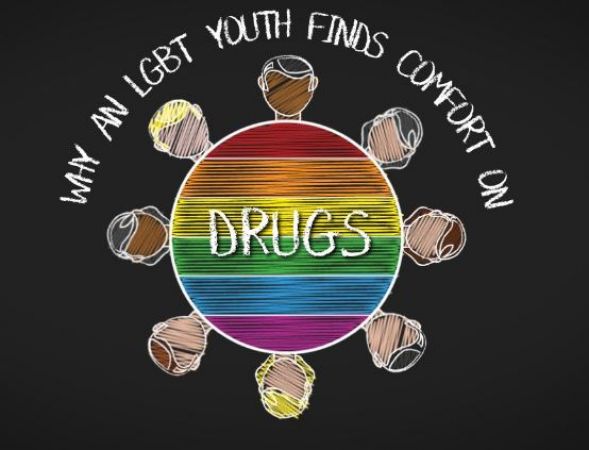
Drug use has become a great problem in the teens' life, their age thrashes them out to these harmful habits which eventually worsen their teenage period. But in a study, it was found that among these teens Turns out, lesbian, gay, bisexual or questioning (LGBQ) are at higher risk to use these substances than their other peers.
San Diego State University researchers have conducted a survey in which they asked questions related to the use of 15 hazardous substances. The survey included 15,624 high school students where it was found that LGBTQ teens more likely to use the 14 substance out of 15, that were included in the survey.
Alcohol, cigarettes, cigars, cocaine, ecstasy, electronic vapor ("vaping"), hallucinogens, heroin, inhalants, marijuana, methamphetamine, prescription drugs (without physician direction), steroids, and synthetic marijuana are some of those substances that play role in the study.
The questions with which this conclusion revealed were focused on ascertaining that in recent 30 days what was respondents patter to use the substances. The research also witnessed that the LGBTQ teens tend to take harder drugs in comparison to others even alcohol, cigarettes, cigars, vaping, and marijuana's use put them at higher risk than their heterosexual peers.
While noting down that the results should be used as a judgemental perspective for the LGBTQ teens, one of the research team member John W. Ayers who is also the co-author of the survey conducted expressed that “There have been some indications that LGBQ teens face increased substance use risks, but our study shows for the first time that the problem goes far beyond alcohol and tobacco, including the hardest most dangerous drugs.”
While exploring the significances of the research another co-author, Laramie Smith who is also a LGBTQ health researcher at the University of California, said: “Our findings highlight the need for accepting LGBQ teens, as stigma may be playing a role in elevating their substance use risk or prevent those from needing help to speak up."
The team also took the initiative to motivate the parents, teachers, caretakers, and advocates to take care of the endangered teens as not getting a dignitary acceptance in society can thrash LGBQ teens in the lanes of drugs.
‘American Journal of Public Health' condition the full journal of the research.